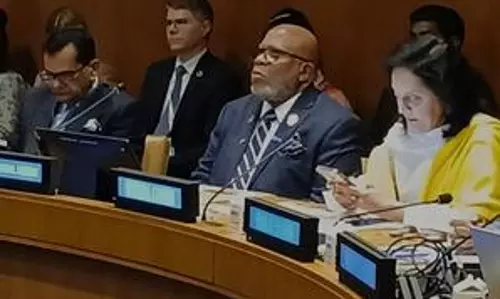

How basic structure of RTI Act is being crippled down?
text_fields12th October marked the 15th anniversary of implementing the right to information act. A truly transformative act, the RTI aims at empowering the citizens, bringing more transparency between the government and citizens, curtailing corruption and as an aid that functions for the betterment of democracy. However, over the past couple of years, several instances of the dismissal of the RTI reveals that the basic structure of the Act is being crippled down.
The government has been failing to provide information to citizens and is strongly alleged for diluting the act, keeping the Information Commissions dysfunctional, failure in filling up vacancies and refusing to answer the basic questions under the Act. One of the recent instances being the Modi government's attitude towards the questions raised against the PM CARES fund. The PMO dismissed the questions by stating that the PM CARES is a private and not a public fund.
On RTI's 15th anniversary, Satark Nagrik Sangathan (SNS) has presented a report based on the performance of the 29 Information Commissions set up across the country. The report titled, 'Report Card on the Performance of Information Commissions in India, 2020' reveals that the backlog of pending cases in the CIC is 36,500. This is rather shocking as the Information Commissions take two to three years to reveal information when the law states that the citizens are entitled to the information within the thirty days.
Shailesh Gandhi, former Central Information Commissioner and RTI activist in a virtual interview with Faye Dsouza referred to the first six to seven years of the RTI as a 'honeymoon' period. However, that's not the case anymore.
He says that part of the problem is the selection of commissioners based on political networking and prejudice and how there was no process in the selection of information commissioners." There has been no logic and no transparency. We need better commissioners, and unless there is a process of selection, there is no accountability and chance to reciprocate. If we don't get them right, I think we will continue to crib like this," says Shailesh Gandhi. An estimate has revealed that between 40 and 60 lakh RTI applications are filed every year, while only less than 3 per cent of Indian citizens have ever filed an RTI plea.
While the shortage of staff in government offices and lack of adequate infrastructure to deal with RTI applications is a worrying cause in weakening the RTI, another serious issue is of the threats and violence against those who have filed an RTI. It has been revealed that at least 86 people who had filed RTI applications have been killed and 175 applicants have been attacked over the last 15 years. 184 applicants have been reported of being harassed, while at least seven applicants have been pushed to commit suicide. This has hindered the citizens from coming forward to question the functioning of the government.
"Nowadays we see RTIs om very sensitive issues, on issues which may embarrass the government, the RTI gets transferred and goes from here to there like pass the parcel," says Sourav Das, an independent journalist and RTI activist on an online panel discussion with Faye Dsouza on Friday.
Responses to RTI queries by Sourav has also recently revealed the government's failure in implementing the measures that supposedly is aimed at safeguarding and securing the data of the Indian citizens collected by Aarogya Setu, a COVID-19 tracing app set up by the government.
(Video Credits : Ubair-ul -Hameed )






















